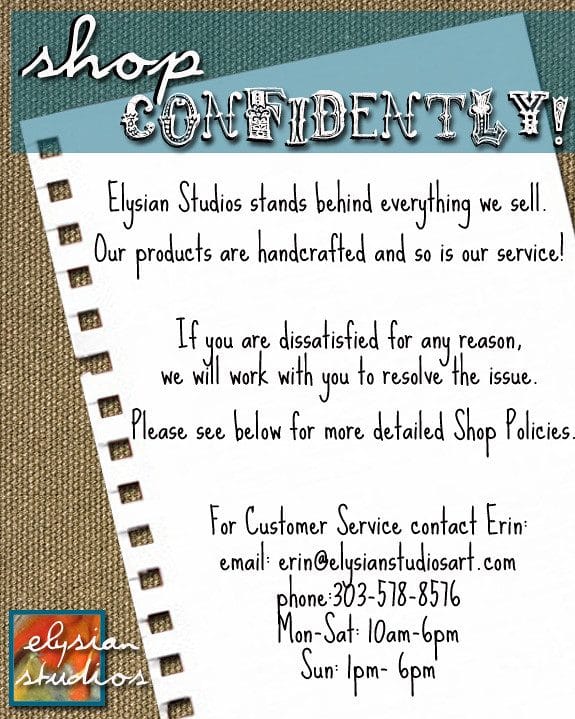The Artful Life: Making Origami with Kids
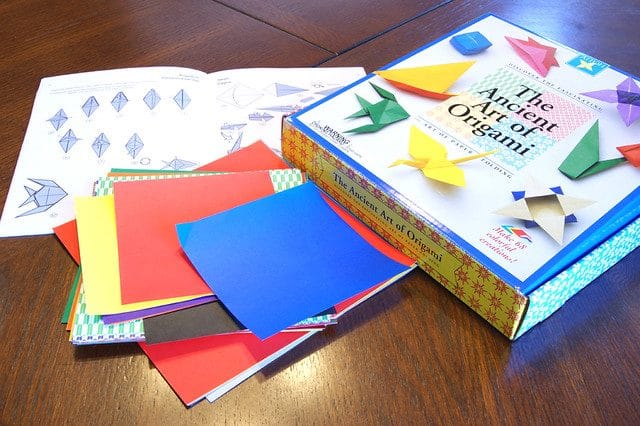
We’ve been learning about Origami, and couldn’t wait to try a few simple projects! The kids and I rushed out to our local craft store to buy an Origami Kit. This seemed to be more cost effective than buying all of the components separately.
It was a bit confusing for us to figure out the Origami diagrams at first, so we turned to some help from YouTube to guide us through the steps. Now that we are familiar with how to make the proper folds, it will be nice to have our book handy for future Origami sessions.
“The Crane”
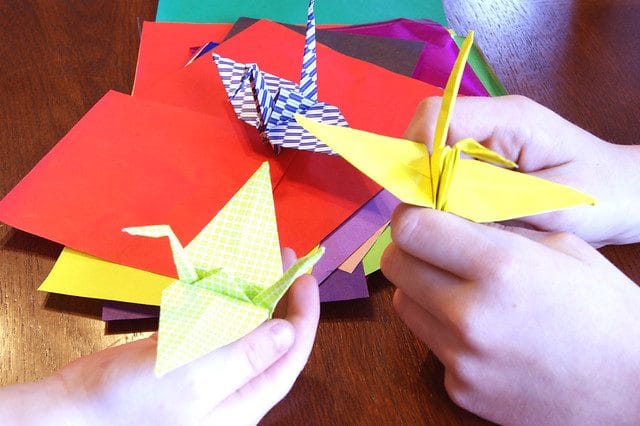
An ancient Japanese legend promises that anyone who folds a thousand origami cranes will be granted a wish by a crane. The crane is a revered creature in Japanese culture, and 1,000 Origami cranes, held together by string, are a symbol of world peace. Individual Origami cranes are also often exchanged between special friends and loved ones.
Folding an Origami crane is more difficult than the introductory cup and balloon. However, if you follow along with this video, it is an enjoyable challenge! We chose the medium-sized paper from our set (about 6″ x 6″) in three separate colors. We plan to fold more and hang them from our studio ceiling!
“The Angelfish”
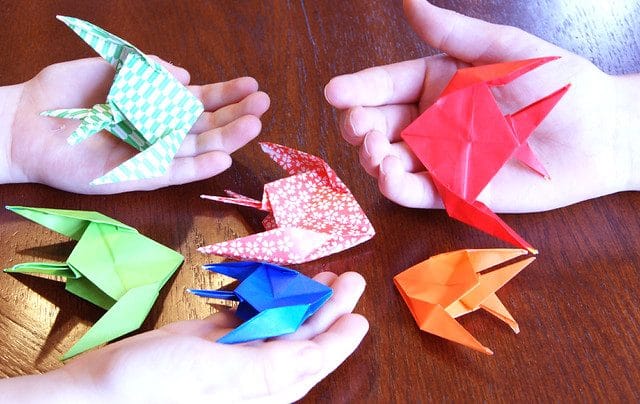
My youngest son chose the Angelfish from our Origami book, so we gave it a whirl. It is more difficult than the crane, but again, we found a tutorial video, and it was quite fun!
We each chose our own color of the medium-sized Origami paper for our fish. There are some small folds in this project with which little hands will require help.
These are so sweet, and would look adorable on a card, gift wrapping, or with a magnet on the refrigerator. My youngest son attached a magnet to his fish, then tied a paperclip to a string and wrapped the other end around a popsicle stick. He made his own fishing game!
Origami is a practical and enjoyable craft for the whole family. You can create toys, decorations, and gifts simply with some beautiful paper and a little patience!
“Between the Folds”: Inside the World of Modern Origami
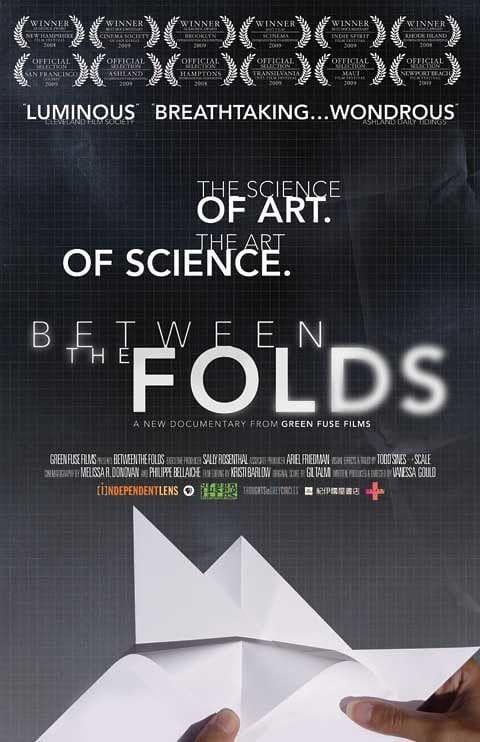
“Look around the room and think about how many things fold….paper, clothing, our skin, even DNA, is folded. You and I are born from folding….“
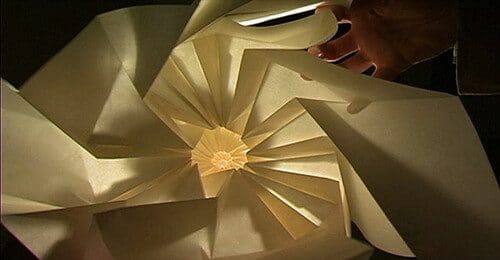
“The rules are simple:
one piece of paper transformed by folding.
No scissors. No tape. No glue.”
“Between the Folds” is director Vanessa Gould’s fascinating documentary about the modern condition of the ancient art form of Origami. From the “Father” of modern Origami, Akira Yoshizawa, to the breakthrough research of MIT professor, Erik Demaine, this film coalesces the many paths Orgami has taken into a beautifully inspiring film.
Contemporary origami has superseded the simple folds of the crane and the fish, and has branched into many forms to suit the needs of artists, mathematicians, enthusiasts and teachers. Yoshizawa is attributed with inventing the diagramming system that uses pictures alone to fold two-dimensional paper into three-dimensional objects.
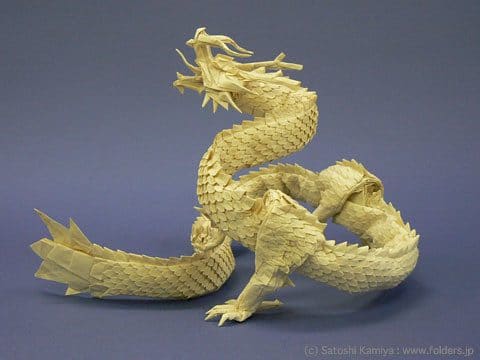
Once these diagrams started and ended in under ten folds. Now you can find pictured instructions for hundreds of folds. Contemporary Origami enthusiasts are even using mathematical algorithms to describe their techniques. This dragon, by Satoshi Kamiya, took over a hundred hours to fold from one single piece of paper.
The unique styles of Origami artists are amazing, considering the limited list of materials. Yet great variety comes from handmade paper of different materials, diverse philosophies on folding methods, and distinctive applications for the Origami itself.
Humanity has a need for things to fold.
We carry and store objects (often more than we have space for). We build and attempt to travel to places no one has gone before. We teach each other complicated principles that need to be diagrammed. We desire to better understand how the natural world functions.
Origami corresponds to each one of these pursuits, and along the way, we realize it’s just plain fun!
The origami in this commercial was created by Robert J. Lang for Mitsubishi
“Between the Folds” is a fabulous film, suited for all ages. It’s wonderful to watch while you are doing some creative work of your own! I promise it will inspire you to think of a simple sheet of paper as a limitless world of possibility!
“Blink!”and Explore the Denver Art Museum with Children
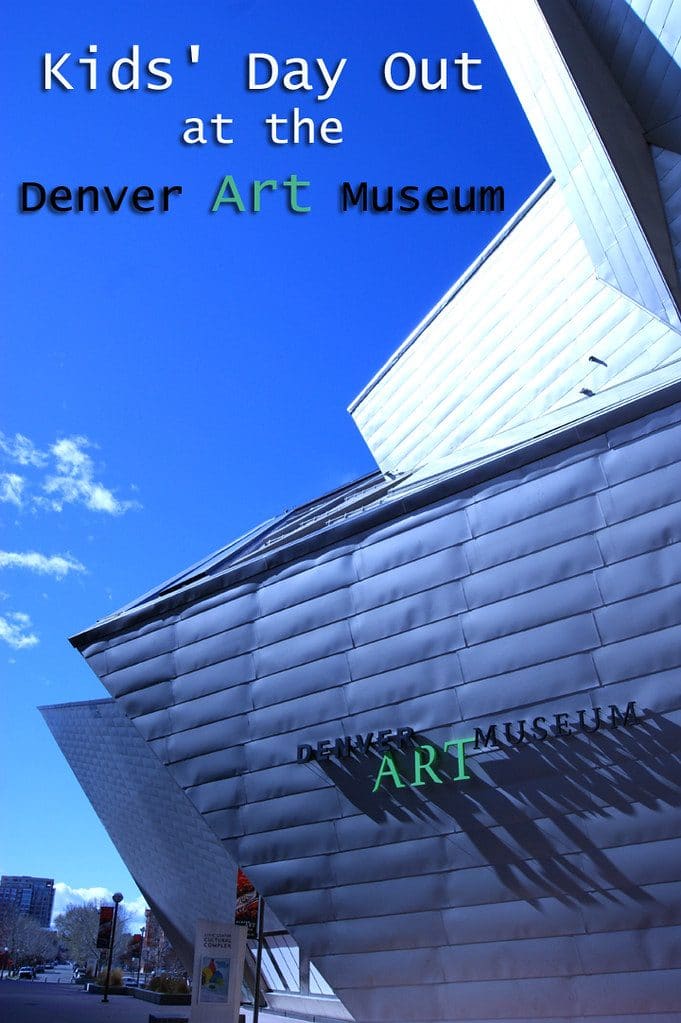
Spring Break was the perfect opportunity for us to get out and go downtown to tour the Denver Art Museum. Their permanent collections are fabulous, but there is a temporary exhibit until May 1, titled “Blink!,” that we wanted to see. Additionally, the museum has just renovated its American Indian Art gallery, and we wanted to explore what’s new! Unfortunately, we missed the controversial unauthorized Origami art installation, which made the Denver Post news that day.
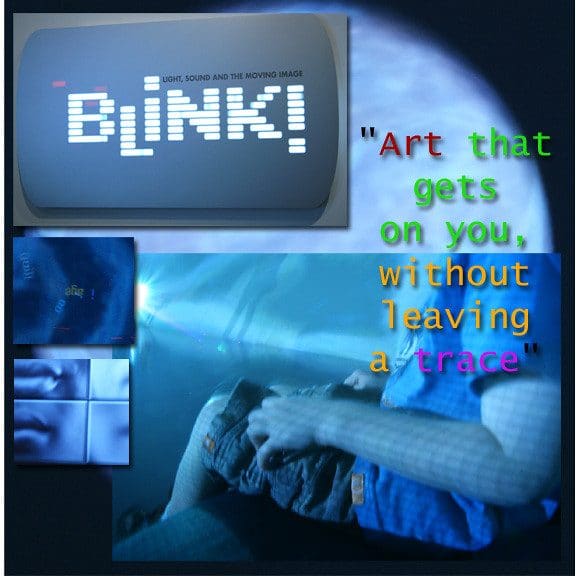
The boys were circumspect about whether they would truly enjoy their day. Of course, I would love to spend countless hours just gazing at the European and Modern Art collections, but that schedule won’t fly with two young children. The current exhibit, “Blink!,” is one that is very conducive to children, but be warned that it can be highly stimulating. “Celebrating the radical transformation of technology over the past 30 years”, this collection features “electronic and time-based media.”
I believe all of the subject matter is appropriate for family viewing, and kids will be delighted by the lights, sound and movement that is out of our ordinary experiences with media.

We particularly enjoyed “Chamber” by Charles Sandison, which surrounds you in a room of streaming currents of words. Encourage your children to find a word, and point to it. Watch how the images morph on your skin and clothing, and how shadows interact within the space.
We also loved “Still Men Out There” by Bjorn Melhus, which features up-ended vintage televisions that broadcast a themed soundtrack synchronized with light. Stop and sit for a bit on the bench and enjoy the wonder of this unique piece.
Encourage your children to stop, amidst the hyper-active exhibit that is teeming with flashing lights and sounds, and ask them questions about these artworks. How does it make them feel, how do they think it was made, why do they like this piece, or why not? These questions spark great conversations!
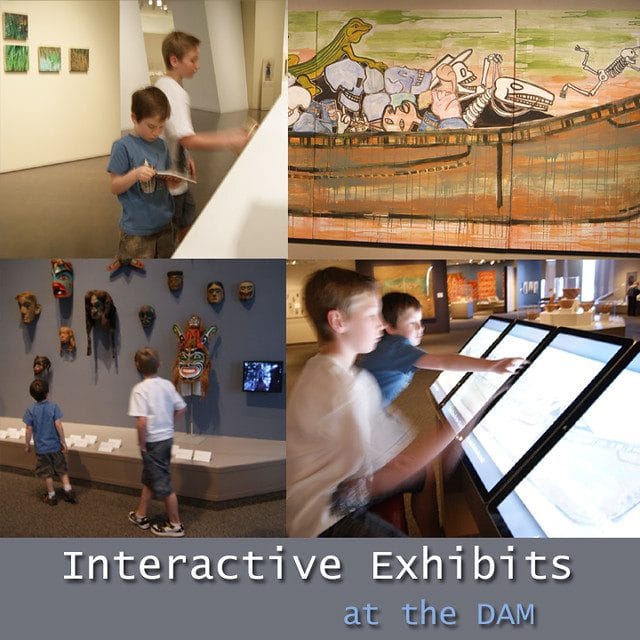
When you visit the Denver Art Museum, it is important to know that they have tons of activities geared for helping children learn how to negotiate through a gallery space. From “I-Spy” and “Art Bingo” cards placed within the galleries (top left), art “hot spots” and educational backpacks that can travel through the museum, to the new interactive screens in the American Indian Gallery (lower right). This incredible touch screen display helps viewers understand the imagery that Jaune Quick-To-See-Smith included in her wonderful painting,”Trade Canoe for Don Quixote”(top right).
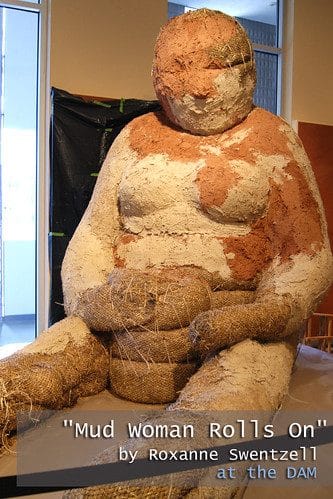 We loved the remodeled American Indian Gallery! A wide variety of art is on display, from historical artifacts to contemporary paintings. The boys loved seeing an authentic tipi from the 1800’s, as well as the exquisite Indian Chief headdresses. This permanent collection sets a high bar for art museums!
We loved the remodeled American Indian Gallery! A wide variety of art is on display, from historical artifacts to contemporary paintings. The boys loved seeing an authentic tipi from the 1800’s, as well as the exquisite Indian Chief headdresses. This permanent collection sets a high bar for art museums!
The DAM has commissioned a sculpture by artist Roxanne Swentzell to greet visitors at the exhibit. Visitors can watch her build the storyteller sculpture with straw wattles and Colorado adobe on certain days of each week. This sculpture was initiated this spring and will likely be completed in the fall.
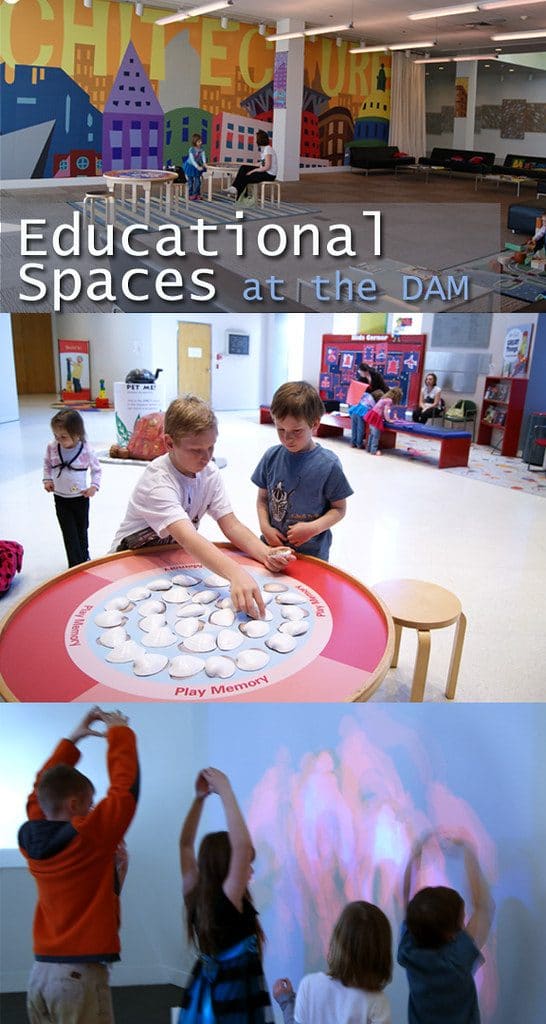
Throughout the DAM, there are places for kids to be kids! There’s always a fun, interactive video installation on the second floor of the Hamilton Building, near the entrance to the Western-American Art gallery (bottom image).
There’s also the Just For Fun Family Center, on level 1 of the North Building (middle image). Here, children can play art-themed games, dress up like King-Tut, and make a masterpiece of their own to take home.
On level 2 of the North Building (top image), there is a space for children to draw, read, (have a snack) and play with large architectural blocks. This is also where you can step out on the balcony and catch a gorgeous view of downtown Denver and the Denver Public Library.
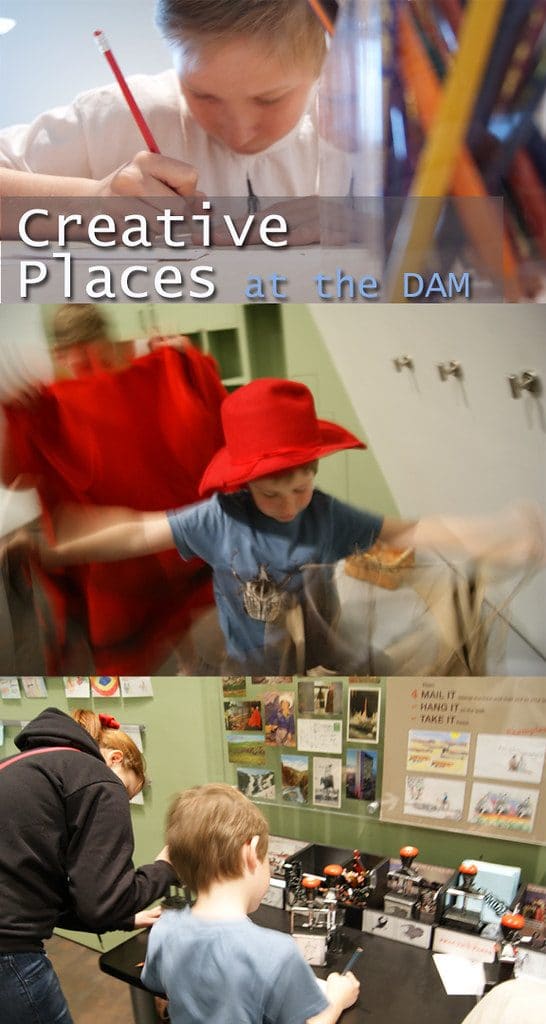
This is no stuffy, boring art museum! It’s very easy to find plenty of things to inspire your children to appreciate art. Stop to make a postcard (bottom image), or dress up like “Long Jakes” by Charles Deas (middle image), in the Western-American Art gallery. To find available projects, ask a museum host what activities are going on, or look at the schedule in advance. Right now, you can create your own flip-book or image spinner as a part of their highlight on animation with “Blink!” (top image).
Have a great time, and be sure to let me know how you enjoyed your visit!
little zen (showers): New Textile Art
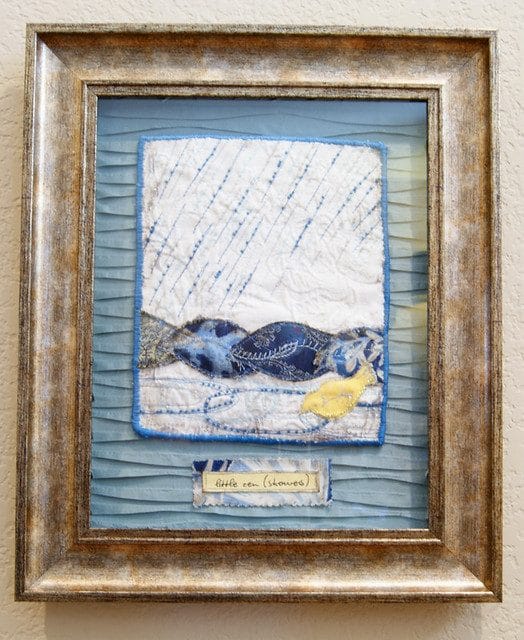
This is a new addition to my textile series featuring “little zen,” a cute little humble bird that stops to rest in different settings. Thus far, he’s visited the forest, beach and now a few puddles during a spring shower.
I have again used the thread-painting technique to create the rippling puddles and falling rain. To add to that glorious wet, spring-muddy feeling, I have aged different fabrics in the piece with Walnut Distress Ink. I have also hand-sewn many seed beads to create a glistening, wet effect in the rain, puddles, and on “little zen.”
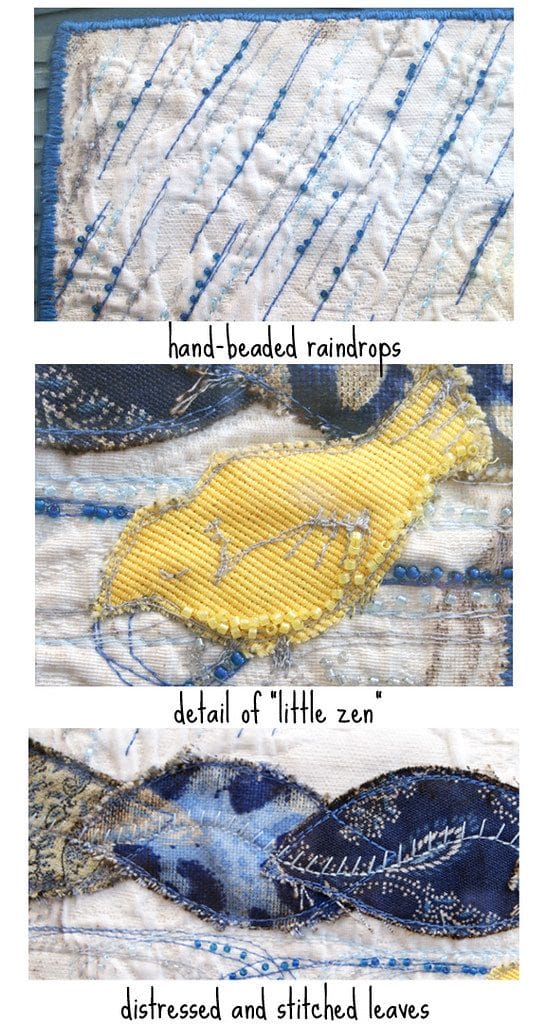
I think it is very important to frame a textile piece like this. Of course you wouldn’t frame a large quilt or wall-hanging, but it is hard for someone to imagine what to do with a small work of textile art, even if they can appreciate it. Years of framing has taught me this, and I always hated seeing poor little abandoned stitcheries and fiber art come in after years of storage.
To solve this problem, I have hand mounted this piece onto a lovely pleated aqua silk. The fabric beautifully echoes the imagery of the art. I added a title, and constructed a shadow box to keep the fabric and beads off the glass. “Little zen” will be pleasantly enjoying his little sip from a fresh rain puddle for years to come!
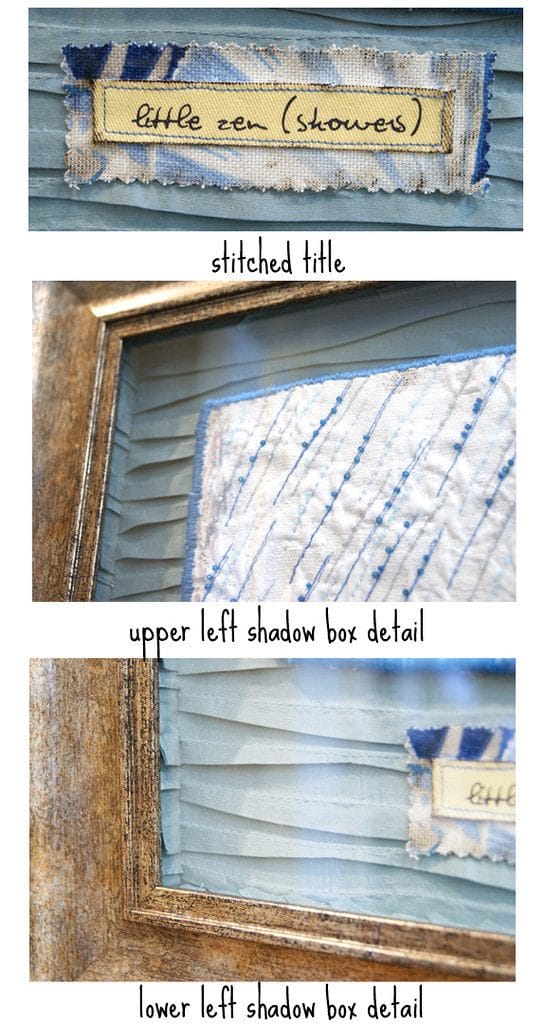
Spring Forward {Inspired Beginnings}
“The September Issue”: How I Officially Became Obsessed with Fashion
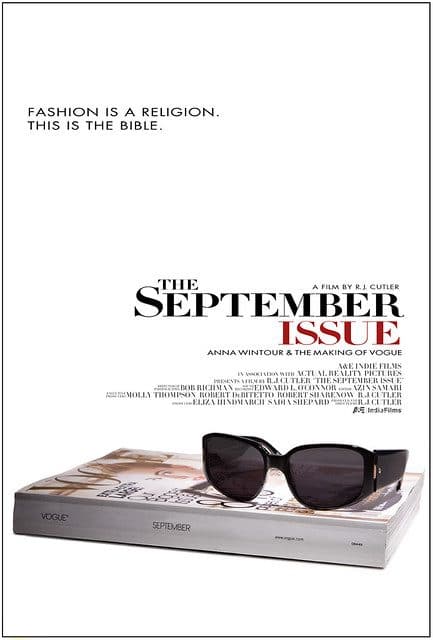
“The September Issue” is a compelling documentary that elegantly enters the halls of Vogue Magazine to chronicle the creation of fashion’s most iconic publication, the September issue of Vogue. Annually, this edition of the couture magazine reaches 1 out of 10 women, about 13 million in all! In the film, we are invited to watch the creative teams, led by the strong vision of Anna Wintour, assemble the largest September issue in Vogue’s history.
If you’ve read The Devil Wears Prada (wonderful book!) or seen the movie, you are familiar with Anna Wintour (a.k.a. Miranda Priestly), and her infamous disposition, as the ruthless Editor-In-Chief of Vogue. This film takes you inside her world, and gives you a great respect for the elements involved in creating a magazine that shapes the fashion industry. Without Anna’s glamorous vision, cunning decisiveness and exquisite business sense, Vogue would not be the most profitable magazine of its time.
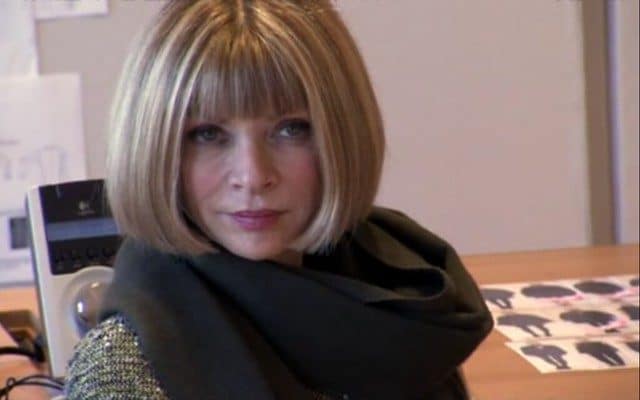 |
| Anna Wintour, Editor-In-Chief of Vogue |
Not only does the film incite a high regard for Anna, but it displays the true artistic talent of the designers, photographers and directors, particularly Vogue’s Creative Director, Grace Coddington. From the outset of the film you watch Grace and Anna interact and think,”This is not going to go well!” As it continues, you see an amazing working relationship between two highly creative, stubborn women, that is quite inspiring! Director R.J Cutler comments on the suprising elements, such as this, that unfolded during filming in an interview on Modelinia.
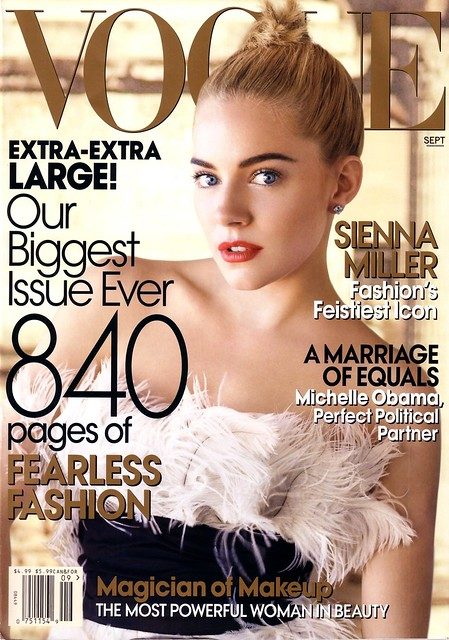
Due to the popularity of the film, the September 2007 issue of Vogue, featuring Sienna Miller, that was documented in the film has peaked to prices between $80 and $115 on eBay, making it one of the most sought after Vogue magazines ever.
One of Anna’s biggest contributions to the way we read fashion magazines, is her brilliant idea to begin featuring celebrities. Though it is commonplace now, Anna Wintour was the first editor to do this, realizing the impact it would have on her readers. In fact, Anna’s impact reaches beyond the pages of her magazine, beyond the readers, beyond the designers and what they feature on the runways, beyond the Conde Nast parent company, and beyond retail stores to the economy of fashion as a whole.
Here’s a great interview of Anna by Barbara Walters:
So there you have it- a brief summary of a terrific film, documenting an amazing woman and her gorgeous magazine. Though I’ve felt Vogue was inaccessible and unapplicable to me for so many years, I finally understand why it is such an influential publication and a reading necessity! From the conceptual drawings of the designers, to the hand-stitched details of couture clothing, to the eloquent, fantastical magazine spreads….I’m obsessed!
“Monet’s Garden”: New Necklace Design
Motivate Your Creativity: Who You Are & Who You Will Be
|
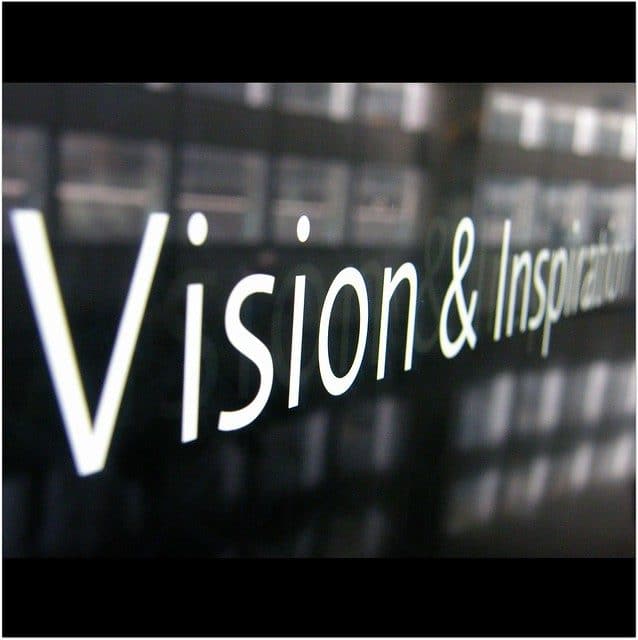
|
| photo by Ugg Boy Ugg Girl via Flickr |
“Never mind searching for
who you are.
Search for the person
you aspire to be.”
-Robert Brault
There comes a point in everyone’s creative life that, in order to grow, you must critically assess both where you are and where you want to go.
Life happens to us when it presents us with circumstances beyond our control- this forms who we are. What we do with these circumstances, however, starts a chain reaction that determines who we become.
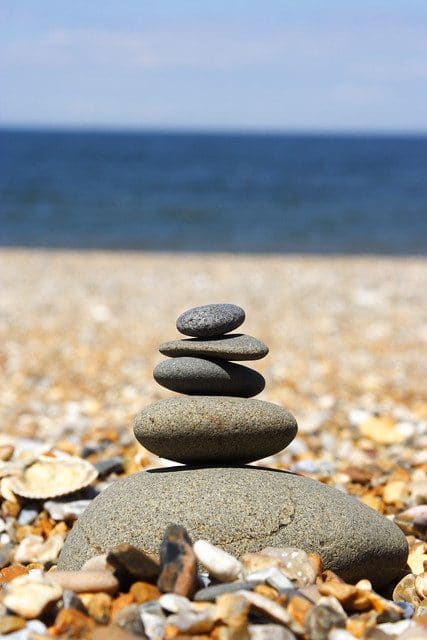 |
| photo by rasmithuk via Flickr |
A creative life cannot be a passive experience. Like delicately stacking stones, we must consciously choose our associations and activities if we hope to grow in a specific direction. To nurture creativity, it is essential to be disciplined about honing our creative skills, yet we also have to attentively balance our other commitments. Recognizing our responsibilities is who we are, purposefully regimenting our schedules, with an eye on the future, is who we can become.
What obligations do you have that are non-negotiable in your life?
This is who you are. I’m a wife and mother who is determined to stay active and healthy. These occupy a great deal of my schedule! Time spent with my family, nurturing their spiritual, academic and physical growth is a big commitment. I also have creative endeavors that must be prioritized if I want to succeed professionally. These aspirations require a commitment of time, money and space, and concerted discipline to use those finite resources wisely.
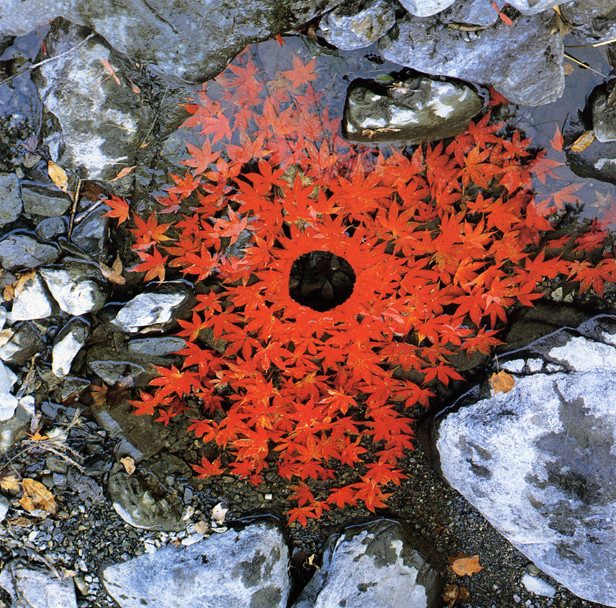 |
| Nature Sculpture by Andy Goldsworthy |
How do you visualize the person you aspire to be, and put that vision into actionable steps?
This is who you can become. Here we’ve arrived at the heart of the issue! To grow creatively, we must take our natural surroundings and shape them to fit our needs for the future. What does that look like? For me, it looks like a lot of lists and a limited social life! Time spent working in the studio during the week, participating in family activities during evenings and weekends, volunteering at school, and staying healthy with good cooking and exercise creates a saturated schedule that occupies virtually every moment of my time. My first step toward building the future I aspire to was to cut out the “dead-weight” activities in our schedule and focus on those that are most important. I’m going to let you in on a secret… you actually know this, but if you’re like me, you have a really hard time admitting it: You can’t do it all.
Here’s what you can do;
In fact, what you must do to reach your goals:
 |
| photo by earthkath via Flickr |
You can begin living life with an “abundant” mindset, honoring the small achievements of everyday that contribute to long-term success. Instead of lamenting over what you didn’t achieve, celebrate what you accomplished.
Sometimes that means you created a masterpiece to be “ooohed” and “ahhhed” (or maybe sold!). Sometimes it means you spent your day networking and returning emails. Sometimes it means you spent hours pouring over your art/craft supplies, putting them back in order. Sometimes it means you washed your clothes, dishes and tidied the house, and sometimes it means you held a beloved family member’s hand while they were ill.
Each one of these is an accomplishment. Each one of these is a building block in the foundation of your future. With self-discipline and a strong-work ethic, actions like this honor who you are and prepare yourself for who you will become.
It may be months or years (all good things take time), but you will become that person you aspire to be. Focus on your goal and prioritize your daily actions that will take you there.
 |
| photo by Zach Dischner via Flickr |
Want more creative inspiration? I’ve contributed a few thoughts on an inspiring post about “Fasting for Creatives” by my friend Parisa, author of Lighting Little Fires. Her blog is full of insightful and creative musings, with gorgeous photos and heartfelt writing.
Studio Series: Setting up a Jewelry Studio
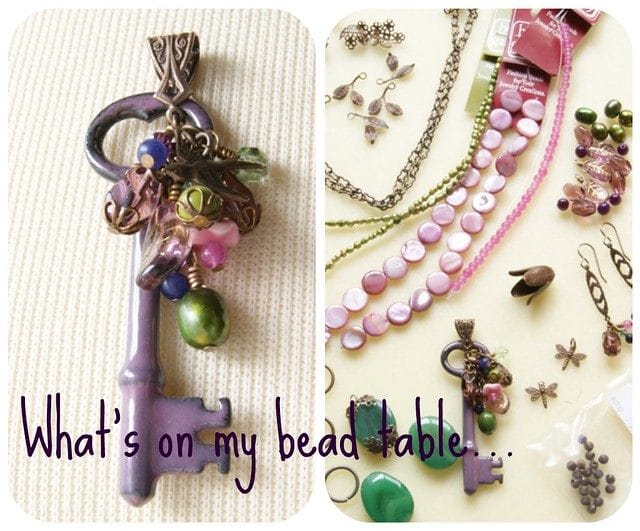
It’s Bead Table Wednesday! I’ve received my first online bead order from BelloModo, which was full of Vintaj goodness! This key was on my table a few weeks ago, but I’ve been in the middle of a studio move and re-organization,so it’s been delayed. I’ve finished my focal, and look forward to stringing/linking my new components into a complete piece! Inspired by Monet, this set will feature purples, greens and pinks with botanical and nature-themed accents.
How is your studio set up?
Do you have a dedicated space for your creative work?
I am in the early stages of my business. I’ve traveled this road many years before (as in, before two children), but am finally able to commit to the long journey ahead. I’ve claimed a portion of the house as my own, and have been busily transforming a make-shift environment into a fully functional multi-media studio (that’s a tall order!)
Studios are such a site-specific endeavor! Though I’ve tried to research the best organizational methods, I’ve found everyone’s space/budget/resources to be completely unique. I encourage you to mindfully determine your own needs. Creativity occurs at the heart, no matter the space, budget or audience!
If you are serious about a jewelry business, then no matter what, organize those beads!
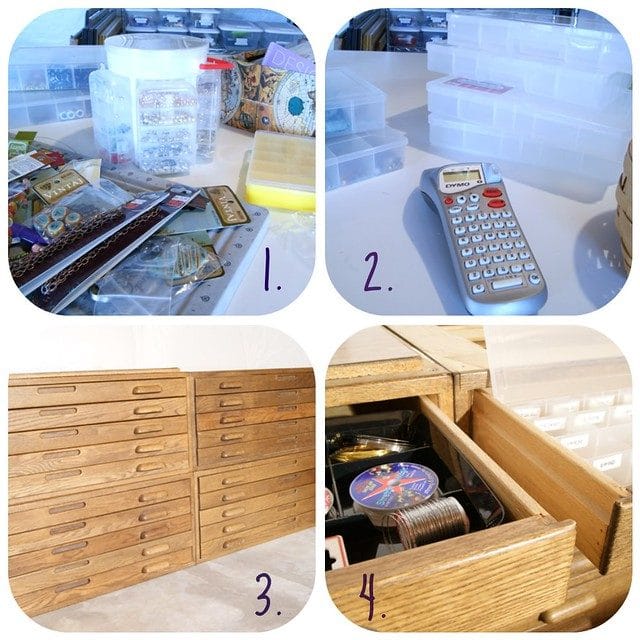
1.) You’re not alone! Look at my mess! For too long I’ve been stashing my bead finds in a mish-mash of varied containers. Consistency and uniformity are key to a successful organizational system.
2.) Enter the label-maker and simple containers. I’ve separated my beads by vendor, color an function. This way I can easily pull the pieces I need, reference what I have used and clean-up will be easy!
3.) I (luckily) salvaged some flat files from a down-sized company. These are essential for the fine-art component of my business, but are also helpful for beads! You could also stack your bead organizers on shelves or in a re-purposed dresser.
4.) I also utilized black desk-drawer organizers for threading elements, and labeled compartments of my bead organizers for specific components. With meticulous labeling, I can easily access a specific tool, as well as reference a component in my beading resources.
Once you make that gorgeous jewelry, you have to photograph it!
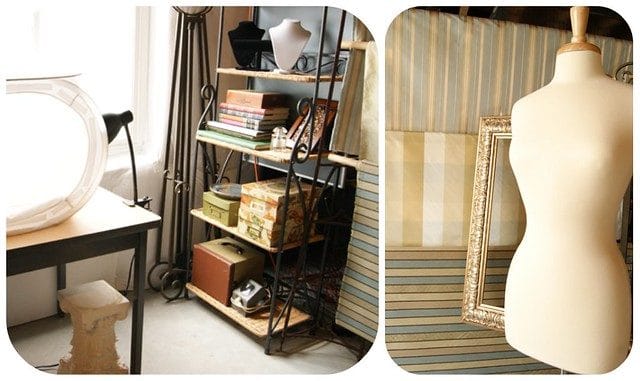
Another important component of a successful beading studio is an area specifically designated to photography. Focusing on available sunlight, I have set up a table, prop shelf, and mannequin near a window in the studio. Even if you don’t have an area you can permanently dedicate to photography, find a place with a table near a window and keep a plastic tub full of your props close by.
A light tent, with additional lamps, is an essential tool for photography when light is not ideal in the studio (night, cloudy day, etc.) Props: busts, books, vases, glassware, etc. are also crucial for adding interest to your jewelry photos. Personally, I feel a life-sized mannequin is a necessity for building your jewelry pieces, as well as communicating their scale.
This is the first of a series of studio organizational tips.
Are you having difficulties organizing your creative space? Do you have advice to share with other artisans?
Let’s talk!
Color Inspirations: March {Visions of Viridian}
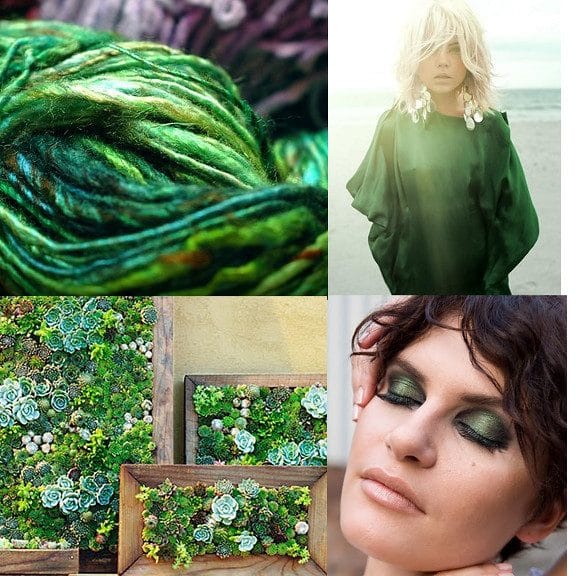
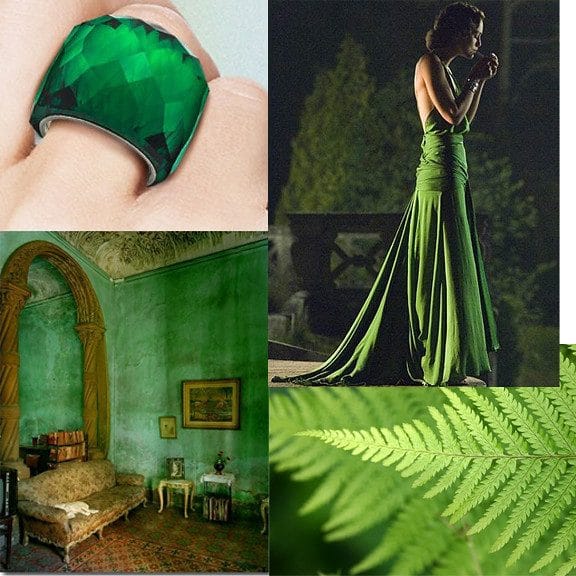
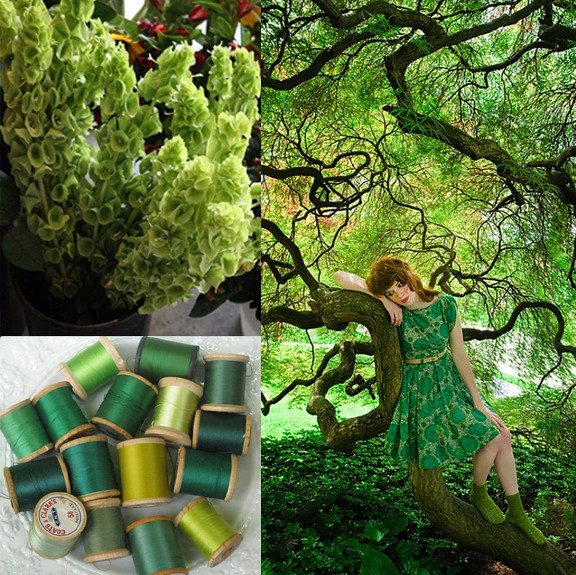

First Image: wool yarn, Kamilla Alnes, smoky eyes, succulents
Second Image: swarovski ring, Atonement dress, ferns, green interior
Third Image: Bells of Ireland, lush woodland, vintage thread
Fourth Image: Italian garden, kiwi cooler, happy Hawaiian, Irish cake
I know I am not alone in finding myself wishing for the brown earth to start sprouting little sprigs of luscious green! This is the color of life, vitality and growth. It can inhabit such a lovely variety of hues and texture from mossy foliage to hard emerald gemstones or liquid viridian silk. I am inspired to add pops of this color to my wardrobe, and dreaming of the day I can feel the lush grass squidge between my bare toes!
How does green inspire you?










 We loved the remodeled American Indian Gallery! A wide variety of art is on display, from historical artifacts to contemporary paintings. The boys loved seeing an authentic tipi from the 1800’s, as well as the exquisite Indian Chief headdresses. This permanent collection sets a high bar for art museums!
We loved the remodeled American Indian Gallery! A wide variety of art is on display, from historical artifacts to contemporary paintings. The boys loved seeing an authentic tipi from the 1800’s, as well as the exquisite Indian Chief headdresses. This permanent collection sets a high bar for art museums! 



















